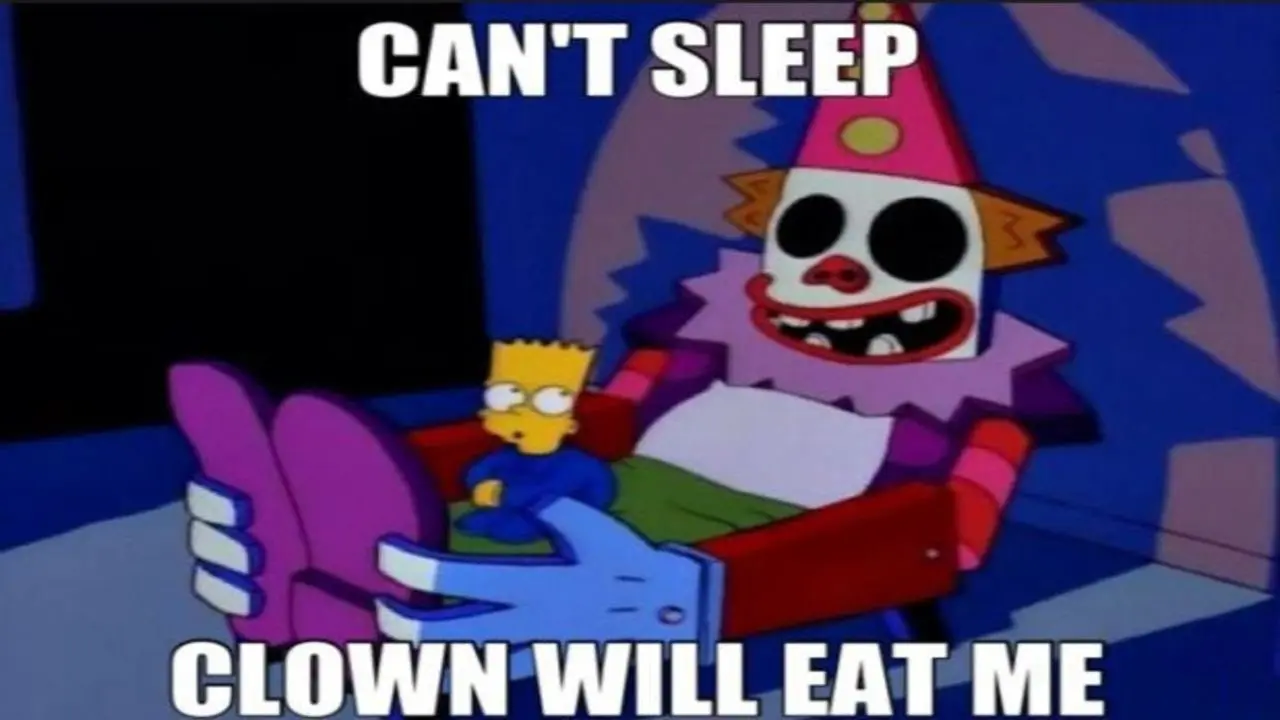Don’t think of anything real
My favorite trick is to think of myself in a movie and play it out. I commonly put myself in Harry Potter. I walk up to the hogwarts castle door…then I just have fun making stuff up and playing it out like a movie in my head. Next thing I know, I’m asleep.
If I get too far, I just pick a different movie and start over
The worst thing you can do while falling asleep is thinking about the real world. The present, past, or future. Nope, don’t think about it.
Clear your mind and jump start a dream
Don’t.
Lately, I’ve been taking melatonin gummies about an hour before I want to go to bed. They don’t really make me sleepy, but they make falling asleep easier (something I’ve always struggled with). I’ll usually take another one when I actually go to bed (unless they’re time time-release kind which I can’t always find).
I try to go easy on those, as I vaguely recall reading that frequently taking melatonin for long periods of time can have some unpleasant effects, but yeah, I finally picked some up, and I’ve used them on rare occasions when I absolutely cannot get to sleep or when my sleep cycle is way out of whack, and they definitely do have an impact.
I try to keep the room dark. Don’t drink caffine near bedtime. I have one of those blackout masks to really get rid of any light if necessary. Avoid thinking about anything interesting or with emotional impact. Get some exercise prior to going to sleep. I’ve rarely had problems with sounds keeping me awake, but I have some silicone ear plugs for the very rare times that that comes up.
Reading, absolutely. And exercise.
If I start reading before bed, I’ll still be turning pages until the sun comes up. 😮💨
Try reading The Hobbit lol. For whatever reason I can’t get more than a few pages at a time before I start nodding. It seems exciting but something about the writing style puts me to sleep.
Massive physical exhaustion with time to “calm down” before sleep.
Oh boy.
First of all, form good “sleep hygiene” habits, read: https://health.arizona.edu/sites/default/files/data/Sleep Hygiene.pdf
A lot of it is obvious, like go to bed at the same time every night (set a timer to get yourself reliable at first!), and wake up at the same time every morning. Give yourself more “sleep opportunity” than the hours you want to sleep so you actually get enough sleep (e.g. if you want to sleep 8 hours, maybe give yourself 10 hours in bed with the lights out).
Don’t use screens several hours before bed, don’t do anything but sleep in your bed, and wind-down before bed with something like reading a book (again, in a chair in another room, not in your bed).
Now for more advanced tips I’ve learned from dealing with insomnia:
A problem I have sometimes had is that tasks like meditation can actually cause me to become more alert, and it turns out meditation actually does cause insomnia.
When struggling with meditation related insomnia, I got lots of practice navigating falling asleep.
What I found most helpful was rather than focusing on an object in a meditation like way, to instead allow mind-wandering and rumination and to try to cultivate a lack of metacognitive awareness about that rumination. Basically, the opposite of meditation. Meditators will hopefully know what I mean by this - but basically, don’t pay too much attention to what you are thinking, just get absorbed into the mind-wandering.
Sometimes if the mind-wandering leads to thoughts or feelings that are “strong” or engaging enough it can prevent me from sleeping, like when I’m anxious or my mind is preparing or rehearsing for an important event or the next day. In that case, a little bit of meta-awareness can be helpful to alert you to the need to redirect your rumination to something actively boring or benign.
In the most extreme instances, I visualize myself working in a factory performing a repetitive motion like pulling a level to operate a press. I essentially constantly try to pay attention to that mundane task and ensure that it remains mundane / uninteresting - just keep pulling the lever and keep paying attention to that task. This is akin to the counting sheep method, but I always found counting sheep too interesting or engaging of a task.
After hours of boredom I usually lose consciousness.
Sometimes I threaten myself with getting out of bed, and often in response I feel a resistance and that makes me realize how tired I actually am, and I threaten myself with doing something boring like sitting in a chair and staring at a wall. Sometimes that is enough to kick me out of my energized thinking into a milder / more boring and repetitive mind-wandering that leads to dreams and unconsciousness.
Sometimes I actually do have to get out of bed and do something, often I will stretch and if I’m not feeling overwhelmed with sleep that way, I find it helpful to exhaust myself with forearm planks - just hold until you can’t anymore (you can also use a timer for 30 seconds or 60 seconds, whatever pushes you past comfort but all the way to failure), maybe try this a couple times. You will sweat and it’s miserable the whole time, and you will be tired and want to crawl back into bed. That has helped me fall asleep really well before, and sometimes I think it’s because the blood also gets into my muscles and somehow this helps me relax.
Anyway, hope this helps!
Do nothing but sleep in the bed?
Oh, 'cmon!
My wife won’t be happy about that.
She really likes to cuddle and play with the cat in thereawww 🥹
400mg theanine and/or 2g Magtein. Melatonin didn’t work for me and I dislike the effect of cannabis and its derivatives on my body.
Warhammer 40K lore.
Sleep got a lot better for me when I followed medical advice and avoided my bed for anything but sleep (and the other thing, lol). Your brain needs to not associate your bed with work, school, video games, etc., so it can work as a trigger. Ever since I did that, I sleep within minutes of laying down.
I had absolutely debilitating insomnia for my entire life. In the last couple of years I discovered something interesting. I’ve got a condition called aphantasia which means that I cannot see any images in my mind. For my whole life I heard the phrase counting sheep and thought it was a metaphor. Just like. Thinking about sheep since visualizing wasn’t something that I thought people could do.
Anyway, in researching about the condition I found an article online for an exercise where you can work on trying to visualize something. Basically you close your eyes and use the flashing remnants of vision to try to force a shape to exist. Sometimes you need to push on your closed eyes and a little pressure will cause some patterns to appear. You’re supposed to do this exercise while talking to someone outloud. Even if it’s just making a recording. The article I read said you must say it out loud or you will fall asleep. Me having never fallen asleep in my life without hours of concerted effort completely ignored this warning and much to my surprise it absolutely made me fall asleep within minutes.
Ever since then I’ve been able to use this technique to fall asleep every night. It’s like my mind finally learned how to do it. Most of the time I don’t even need to do these exercises any more.
That being said I was so pleased with this side effect I never even tried the say it out loud to try to improve mental images and I still can’t see anything in my minds eye. But being able to sleep every night without fail is a freaking miracle. So I highly recommend giving it a shot.
Here is the original instructions I found on it. https://photographyinsider.info/image-streaming-for-photographers/
That is a long article that eventually links you to watch a video to learn how to do it. Here’s the link:
https://www.youtube.com/watch?v=3F2qjtwcMhA&t=161s&pp=2AGhAZACAQ%3D%3D
For my whole life I heard the phrase counting sheep and thought it was a metaphor.
It … isn’t?
Waauw
Welcome to a whole new world where you can’t do some fundamental form of thinking most people can.
Theres also people apparently that don’t have an inner monologue and can’t hear words in their mind either. I truly can’t understand how that works. It’s way more foreign of a concept than not being able to visualize. But maybe that’s just because I’ve never been able to do it so I don’t know what I’m missing.
The people that can’t do either are truly frightening. What’s going on up there?
I’ve been practicing the rubbing thing today. The only things I think I’ve seen so far are faces, glimpses of and silouettes of.
It works better if I keep my palms slightly pressed over both eyes. As soon as there’s a lightsource I just see that, light through my eyelids.
This is amazing and slightly scary.
How long since you’ve discovered this?
It’s been about a year or so. You shouldn’t have to constantly apply pressure. When I first started I just kind of took whatever was there and tried to pretend it was a specific thing then hold that thought then as it morphed and changed just quickly identified a new thing and held that thing as long as possible. I think the article calls it image streaming. Then when all the sparks fade from pressure maybe do it again.
Dude. I had to revisit your comment. This is amazing.
Thank you 1000 times!!!
Awesome I’m glad it’s doing something for you, getting better at visualizing at all?
3rd Eye Blind crew represent
I haven’t seen exercise mentioned nearly enough in this thread. Doing an hour of yoga before bed makes sleep soo much easier.
I couldn’t sleep for decades until I started listening to audiobooks. It’s a bedtime story. Shut your mind off, let go of stress and just listen. It can still take a little while but now I fall asleep in minutes instead of 3 hours. It also helps me go back to sleep if I wake up from nightmares.
Same. Podcasts are also great, and some are even made specially for this purpose, like Nothing Much Happens.
Hit your face with a frying pan 😆
No phone, No light, no noise, slightly cold temperature, read a book, have vigorous sex.
Alternatively some strains of weed also work allegedly.
Same time every night. Consistency is key.










